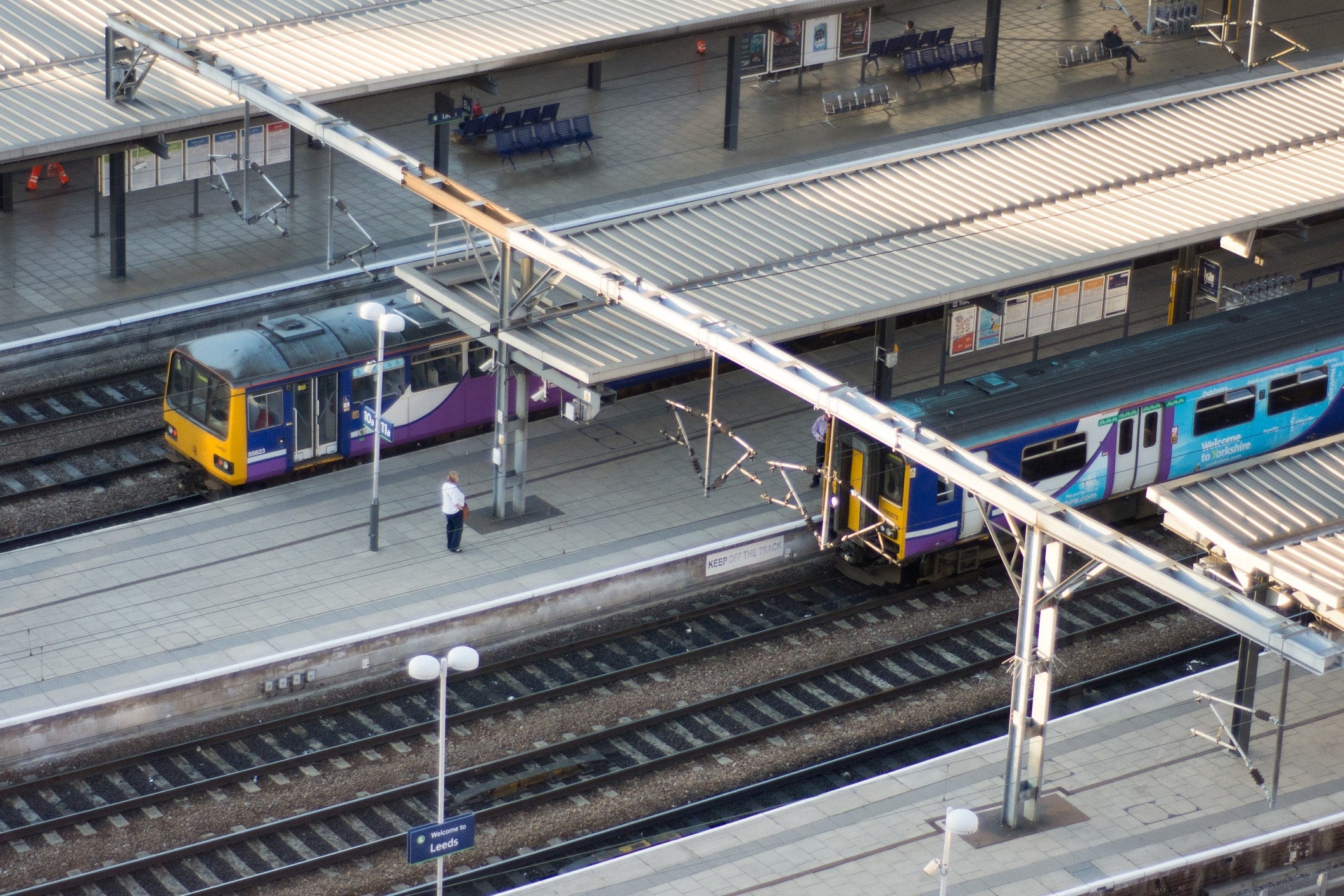End privatisation to help ‘left behind’ areas of Britain, voters say
Study reveals reasons why voters support taking services back into public ownership

Your support helps us to tell the story
From reproductive rights to climate change to Big Tech, The Independent is on the ground when the story is developing. Whether it's investigating the financials of Elon Musk's pro-Trump PAC or producing our latest documentary, 'The A Word', which shines a light on the American women fighting for reproductive rights, we know how important it is to parse out the facts from the messaging.
At such a critical moment in US history, we need reporters on the ground. Your donation allows us to keep sending journalists to speak to both sides of the story.
The Independent is trusted by Americans across the entire political spectrum. And unlike many other quality news outlets, we choose not to lock Americans out of our reporting and analysis with paywalls. We believe quality journalism should be available to everyone, paid for by those who can afford it.
Your support makes all the difference.Voters believe that privatisation of public services has deepened regional inequality and “left behind” parts of Britain in the name of profit, new research has found.
Polling conducted by Survation asked members of the public why they supported the renationalisation of public services such as public transport, utilities and the Royal Mail.
The most popular reason given by supporters of public ownership was that extra funds should go back into services rather than to shareholders, with 41 per cent citing this as the reason for their support.
A roughly equal number, 40 per cent, also said they believe that “privately owned companies prioritise profitable areas over providing a good service to everyone”.
The finding comes after a torrid few years for railway services in the north of England that cumulated with the government taking the Northern rail franchise back into public ownership on a temporary basis.
Passengers have complained at long delays in withdrawing old “Pacer” trains, which were introduced in the 1980s as a temporary solution by British Rail and kept on by the new private operators.
The availability of reliable internet access in rural areas also became a political issue at last year’s election after Labour pledged to take the UK’s broadband infrastructure provider Openreach into public ownership to achieve it. Britain’s internet companies have been accused of under-serving less profitable areas and admitted they would not be able to reach universal coverage without state support.
Royal Mail has also warned rural deliveries are under threat because private competitors “cherry pick” profitable parts of the country while it is lumbered with a universal service obligation imposed when it was privatised.
The findings are interesting in the context of the government’s so-called “levelling up” agenda, under which ministers have pledged to help parts of the country that have done less well in recent decades.
It also gives a clue as to why support for public ownership is so high among supporters of all political parties – a fact of public opinion that flew under the radar for many years after privatisation.
The research found that 73 per cent of voters want public transport run in the public sector, compared to just 19 per cent in the private; 63 per cent supported utilities being public compared to 26 per cent private; 69 per cent wanted Royal Mail in public hands compared to 21 per cent private. The level of support in the survey is similar to previous polling on the issue.
It comes amid a Labour leadership contest in which all the three remaining candidates have pledged to return a slew of public services to public hands.

Voters were asked whether they supported public ownership in certain sectors, and then asked to indicate whether they agreed or disagreed with different justifications.
Other popular reasons were that voters believed services were more accountable in the public sector, and that when privately owned services fail the public sector ends up picking up the cost anyway. Both these reasons were cited by 33 and 32 per cent of voters respectively.
29 per cent of voters said public ownership was a moral issue and that services should simply not be run for profit, while 22 per cent said the fact promises made at privatisation hadn’t been kept was important.
Claims that publicly run services would offer better value or higher standards were cited by only 17 per cent and 14 per cent of those who said they agreed – a relatively marginal reasoning.
“This polling once again shows that the overwhelming majority of people support public ownership of our public services,” said Cat Hobbs, director of the campaign group We Own It, which commissioned the research.
“And it shows us that the public are fed up with being ripped off by private companies siphoning cash to shareholders rather than investing in our services.
“After 40 years of ideological marriage to privatisation, it’s clear that the public just aren’t buying it anymore. People recognise that this is about fairness and it’s about morality.
“It’s not a fair system that gives us inadequate, unaccountable services. It’s not a fair system that gives us skyrocketing fares and bills. And it’s not a fair system that gives us a cabal of shareholders and CEOs who are creaming off the profits.
“People want a change. People want public services that are fit for the twentieth century. To get that, we have to end the scam of privatisation once and for all.”
Join our commenting forum
Join thought-provoking conversations, follow other Independent readers and see their replies
Comments